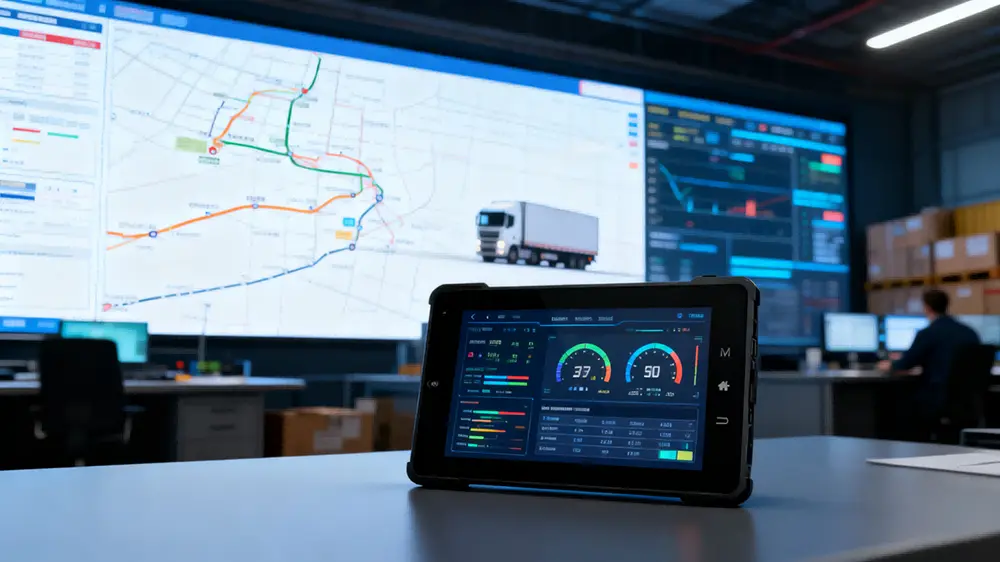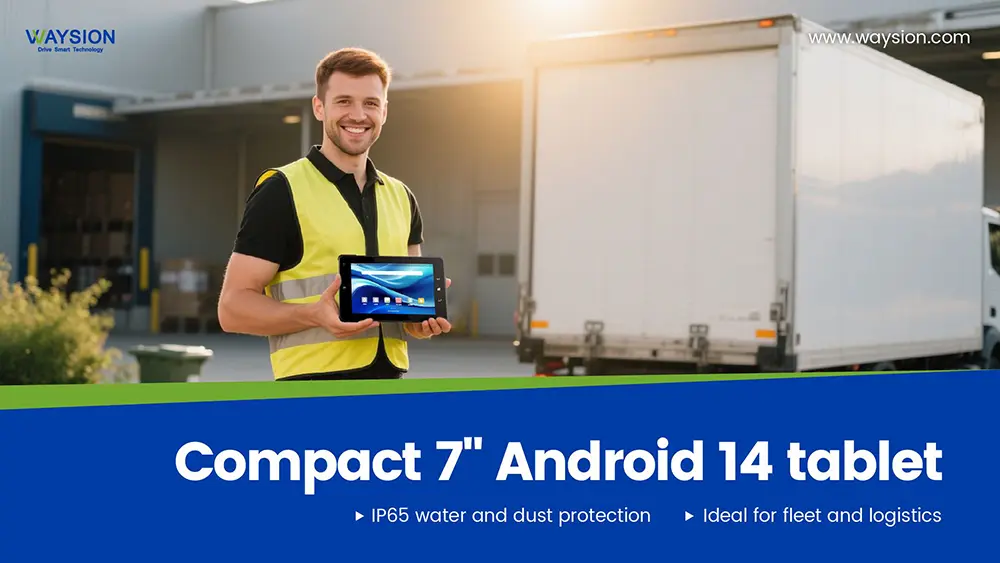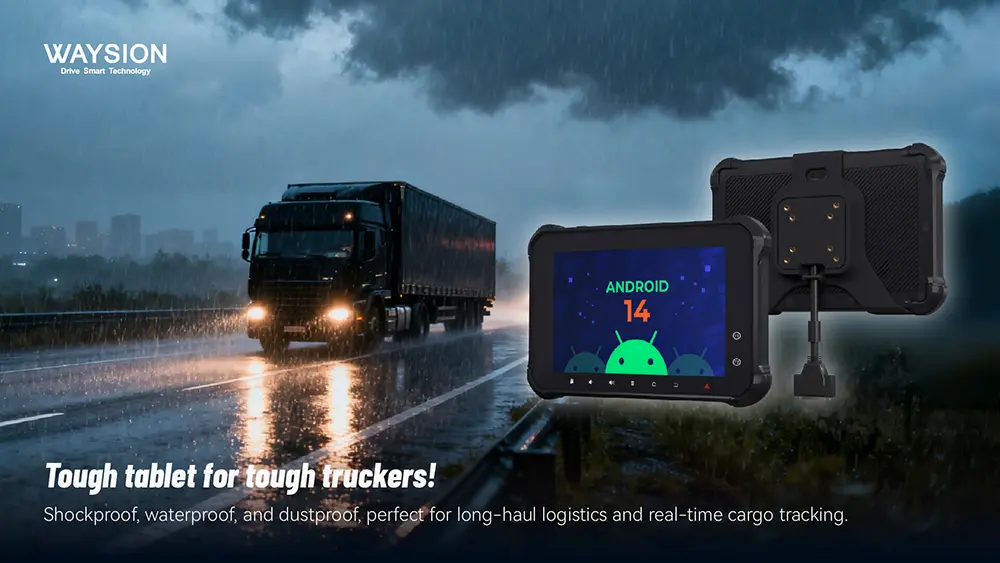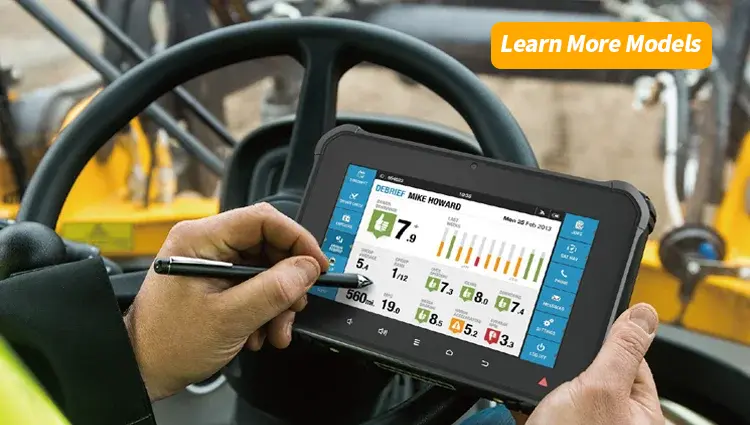Driving Smarter Fleets: The Next Generation of Onboard Tablets for Trucks
As logistics and freight transport evolve toward digital intelligence, the truck cabin is becoming a connected command center — where data, sensors, and AI converge to optimize operations.
Fleet devices are no longer just communication terminals but intelligent, AI-ready computing nodes capable of running analytics at the edge, even in disconnected environments.

The Shift Toward Intelligent Terminals
Today’s fleets demand more than simple navigation and tracking.
They require onboard devices that can process vehicle data locally, detect events in real time, and support software-driven fleet management systems.
Key technological trends shaping this new generation of onboard tablets include:
- AI Processing at the Edge–Real-time driver monitoring, fatigue detection, and behavior analytics without relying on cloud connectivity.
- CAN Bus Integration–Native support for J1939 and ISO15765 protocols enables direct access to vehicle diagnostics and performance metrics.
- Multi-Connectivity Architecture–LTE, GNSS, Wi-Fi, and Bluetooth 5.0 ensure consistent communication across fleet operations.
- Rugged & Reliable Design–IP65+ protection, vibration resistance, and wide temperature tolerance ensure durability in demanding truck environments.
- Remote Device Management–Centralized MDM (Mobile Device Management) systems simplify large-scale deployment and maintenance.

Building Hardware for the Connected Fleet Era
For system integrators and fleet operators, the focus is shifting from hardware specs to integration flexibility and lifecycle reliability.
Rugged tablets designed for truck applications now serve as multi-function platforms for:
- Collecting and processing CAN data (RPM, fuel consumption, diagnostics).
- Running custom telematics or fleet apps.
- Supporting driver coaching and compliance monitoring.
- Enabling video-assisted safety systems via AHD or IP camera inputs.
- Communicating securely through cellular or Wi-Fi networks.
These functions together form the backbone of data-driven logistics, where onboard tablets act as intelligent intermediaries between the vehicle, the driver, and the cloud.
Beyond Standards: From Compliance to Innovation
The real challenge lies in providing hardware platforms that remain adaptable to evolving software ecosystems, support long-term Android OS versions, and maintain compatibility with emerging AI-driven applications.
WAYSION’s engineering approach centers on creating open, customizable, and ruggedized devices that enable integrators to build and scale smart fleet systems — regardless of geography or environment.
Toward a Smarter Fleet Future
The transformation of the trucking industry is accelerating.
With edge computing, connected sensors, and robust hardware design, onboard tablets are redefining what’s possible in fleet intelligence — paving the way for safer, more efficient, and more autonomous logistics networks.

Latest Content
- Unix tablet-Comprehensive Guide to Linux Tablets and Tablet Linux
- Vehicle Telematics Architecture Explained:The Role of Rugged In-Vehicle HMIs like Q777
- What is Hours of Service (HOS)?
- Top Rugged Features for Truck-Mounted Tablets | Essential Guide 2026
- Best Rugged Tablets for Field Work in 2026: Top Picks & Buyer’s Guide(Updated 2026)







